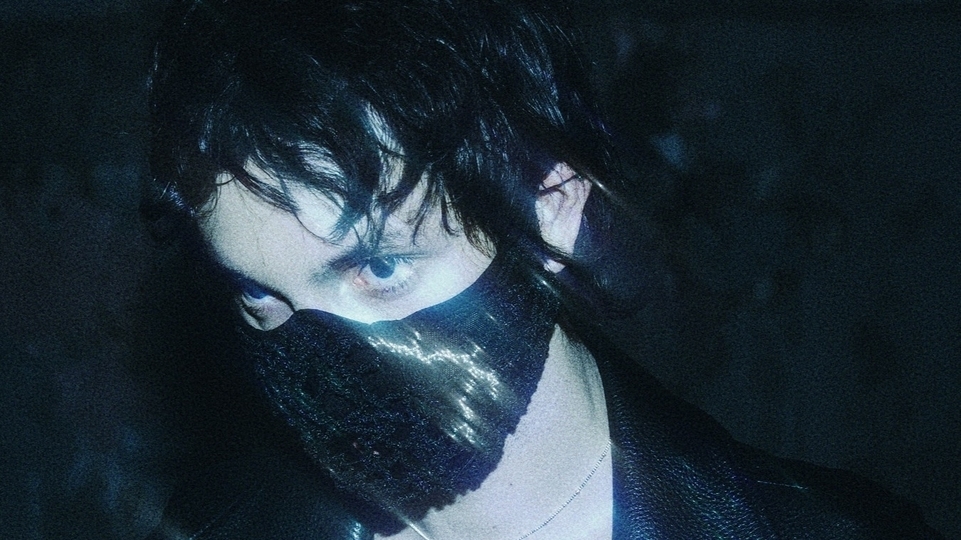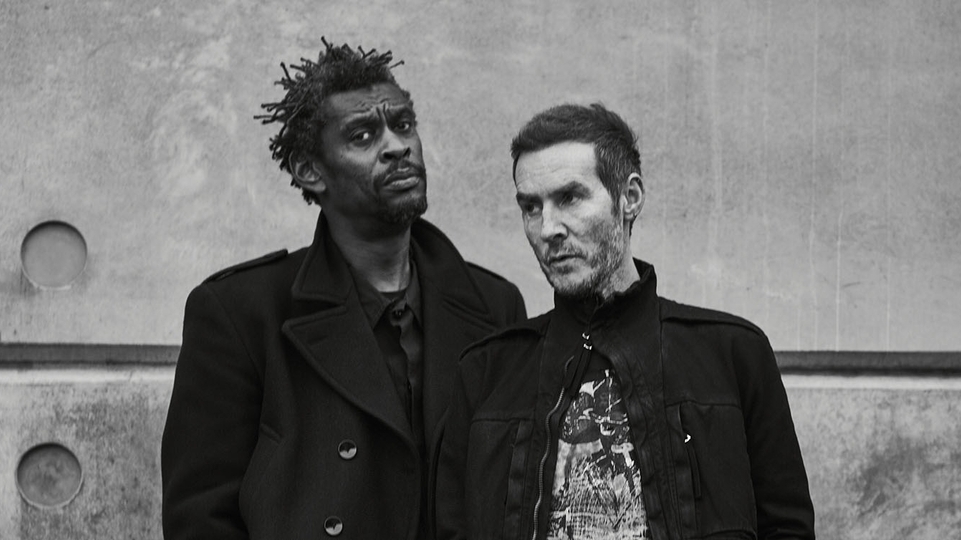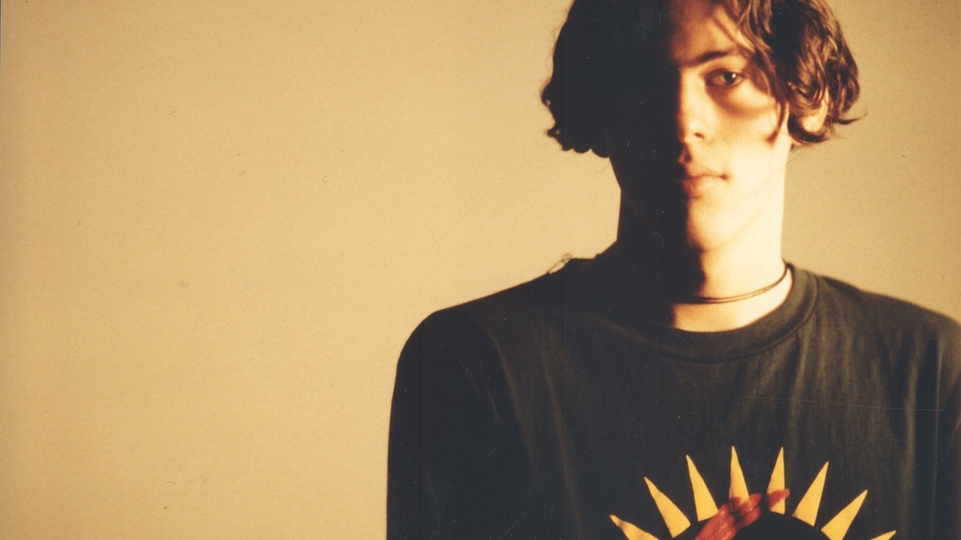
Paula Temple: Techno for the apocalypse
Amsterdam-based brit Paula Temple is renowned for her full-throttle hybrid performances and punky industrial productions, which have earned her wide respect across the techno scene. Having prepped a debut album which deals with issues from climate change to Trump’s atrocious treatment of immigrants, DJ Mag finds out how Temple’s history has shaped a passion for activism and standing up for what’s right...
Pics: Julia Gunter
Live pic: Lewis McClay
It feels like our world is right on the edge. Climate change is looming exceedingly large, threatening our entire species in ways we often have difficulty comprehending. Our inability to do anything in the face of disaster is only exacerbated by a capitalist system that values profits over the common good. Feeling threatened, traditional patriarchal power structures are lashing out against minorities in insidious and violent ways. Technology like artificial intelligence offers hope even as it threatens the displacement of millions of workers, while adding to the gap between rich and poor. And political leaders across the board are either ill-equipped or unwilling to deal with the problems of modernity. Instead, they’re easily lured into self-defeating battles like Brexit, or happy to supplant xenophobia with honest policy solutions. We really are on the edge. Especially if you’re on the wrong end of the power structure — and increasingly, more of us are.
Paula Temple isn’t the first person to write music for the apocalypse. But the viscerality with which she approaches the end-of-times techno on her debut LP, ‘Edge Of Everything’, is undeniable. It’s powerful and raw, and occasionally even violent and terrifying. Heavily guided by her expansive understanding of the times in which we live, Temple’s emotions pour forth, uninhibited by formula or trepidation, translating into fearless music that’s impossible to ignore. Thankfully for humanity — and perhaps, the album’s listeners — Temple also sees glimmers of hope in our future; a beauty in the chaos swirling around us, which reaches skyward, revealing azure cracks amongst the vast inky blackness.
These days Temple lives in Amsterdam. She moved six months ago after living in Berlin for several years. “It’s fantastic, to be honest,” she says. “It’s a beautiful city, and easygoing.” She’s just returned from her honeymoon, and says she realises she needs to take more time off for herself in the future, even if it bothers a few promoters. “I am human. I just need to have a bit of rest.” She got married during the busy season for DJs, just days before Awakenings Festival last year. Her in-laws came to the event — it turns out her new father-in-law is a big techno fan.
Temple’s hybrid DJ performances — she uses Ableton Live, a Push 2, an Allen & Heath K2 and a turntable — are unforgettable. She fires through 25 to 30 tracks in an hour, playing intense, ominous techno that crowds at the likes of Time Warp, De School, Bangface Weekender and Dimensions Festival can’t seem to get enough of. She doesn’t drink or take drugs, and she’s learning to take more care of herself at home and on the road, going to bed at around 8pm during the week, and skipping artist dinners so she can get a few hours of sleep before her gigs. “That is actually making such a difference to the quality of my health and how I perform,” she says.
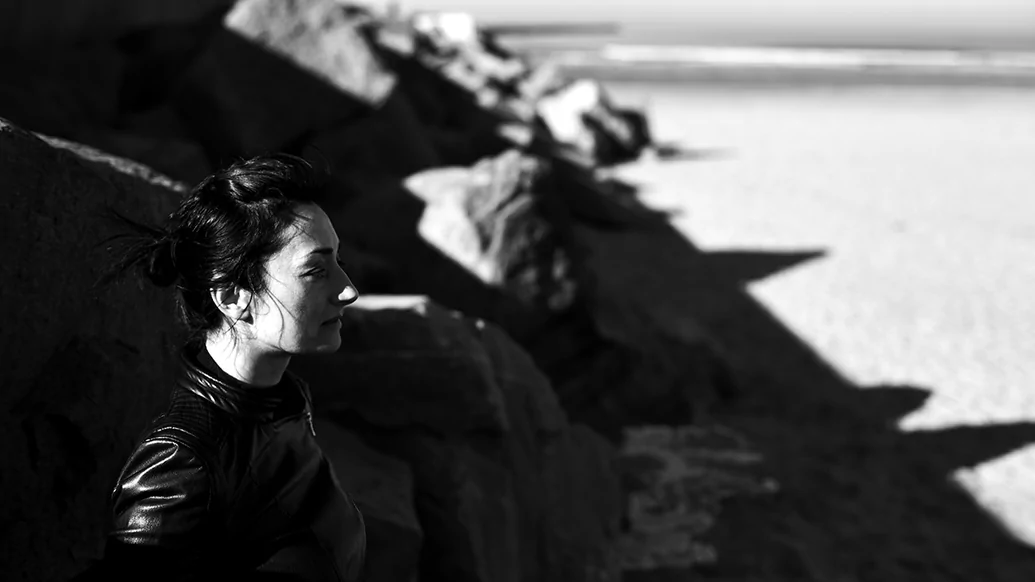

Born in the north of England, in the town of Preston, to music-loving parents, Temple couldn’t hear until she was five years old. While she isn’t sure exactly what her medical condition was — her ears were “blocked”, she says — it affected her early speech and learning. “I do wonder how much that’s affected me and my perspective in the world,” she reflects. An operation eventually restored her hearing. But without the ability to verbally and auditorily communicate during a crucial time in childhood development, Temple had to find other ways of interacting with the world. “I remember being very observant at that age,” she says. “I guess I had to be, because I couldn’t learn through hearing. So I had to make sense of the world through seeing.”
Curiously, Temple didn’t naturally gravitate to voices or conversation when she first started hearing. She doesn’t have a Prestonian accent, and doesn’t sound like the rest of her family. She feels like this gave her a sense of isolation, and she found solace in sounds. “I became completely fascinated,” she says. “I had my personal stereo on all the time. I didn’t really want to listen to lyrics — singing was another instrument that was fascinating to me, but I wasn’t interested in the words. It was tone I was interested in.”
Childhood isolation can lead to troubling issues later in life for some. In Temple, however, it seems to have imbued her with the ability to thrive in a world of her own making. She skipped kids’ music, diving headlong into her mother’s Motown records, and the Pink Floyd, Queen and Kate Bush albums of her father. That led to a love of pop — Madonna, Pet Shop Boys — before bands like Tangerine Dream, Nine Inch Nails and Nirvana came along. Temple was too young for the second punk rock explosion of the late ‘80s and early ‘90s, but her early teen years were filled with bands like Siouxsie & The Banshees before she discovered Warp Records and R&S. “Then it was Jeff Mills and the whole Detroit techno scene.”
Temple was 15-years-old when she went to her first gig — Aphex Twin at an over-21 venue. “It was grimy as hell, like sweat dripping from the ceiling,” she remembers. After an endless wait, packed in and sweating, Aphex finally arrived. “He’s got all his synths out, and they all looked hacked up, like DIY cables hanging out. And within 15 minutes, I’m guessing the sweat dropped into his equipment, and something blew up and the sound cut off and that was the end of the set.”
“I have looked at reports and forecasts of things like climate change... And at the rate we’re going, we’re going to be on the worst end of predictions. We really have to pull our shit together to get on the better end of the nightmare that’s going to come”
Soon she was raving at Leeds club The Orbit, an 18-and-over venue that 16-year-old Temple snuck into. “It was the Mecca of techno in England,” she says. She was also learning to DJ, playing rapid-fire jacking techno, Chicago house and Dance Mania. After winning a Muzik Magazine DJ competition at age 18, she spent the day with Dave Angel. A few years later, she scored a mix on Radio 1. And by 2002, she released her first EP, a three-tracker via Chris McCormack’s Materials imprint auspiciously titled ‘The Speck Of The Future’. She was growing in popularity, playing major festivals across Europe, including at Serbia’s Exit Festival just after the end of the war. “The infrastructure was really still destroyed. But it was one of the most amazing experiences of my life,” she says. By 2006 however, as loop techno saturated the market, Temple was no longer feeling inspired by the scene. And with an opportunity to help design the world’s first MIDI controller for DJing, she left the industry completely behind. It was a decision that would shape her life in immeasurable ways.
By then she’d moved to Leeds, and began mentoring underprivileged kids in music and technology. It was intense and difficult work, with 20-hour days and very little money. In that time, she helped grow the organisation she worked for from just two people to a large team with a board of directors — the same board who terminated Temple’s then-girlfriend after an employee saw the couple holding hands and complained. Temple resigned, calling that period the lowest of her life. After a lengthy and exhausting battle in court, a judge ruled the termination “cruel, oppressive and malicious”, allowing for a sense of relief.
As the court case wound down, Temple felt her creativity return. And in 2012, she released the ‘Colonized’ EP on R&S. It was a departure from anything the label had released in years, and marked Temple’s official return to techno — a scene she admits at the time she knew nothing about. “To be honest, when I came back, I had no idea there was still a techno scene that existed,” she says. It didn’t matter. Temple’s return to the studio was driven purely by a desire to reconnect with her creative self, and techno was the only way she knew how. “I knew I needed to to explore that again, but I had no idea that there was a world out there that was going to accept that. And so in a way, it’s a risk I didn’t mind taking at all.”
R&S boss Renaat Vandepapeliere loved the record. Her unstructured punk-edged take on techno not only sounded fresh, it helped usher the comeback of harder sounds to the genre, which had been consumed by the linear, polished style coming out of Berlin. ‘Colonized’ was also expressly political, imagining “what it would sound like to resist the control systems we encounter every day, to refuse standardisation and covert forms of colonization. I mean, people went, ‘Holy shit, what the fuck is this?’ But for me, I was just truly myself,” Temple says.
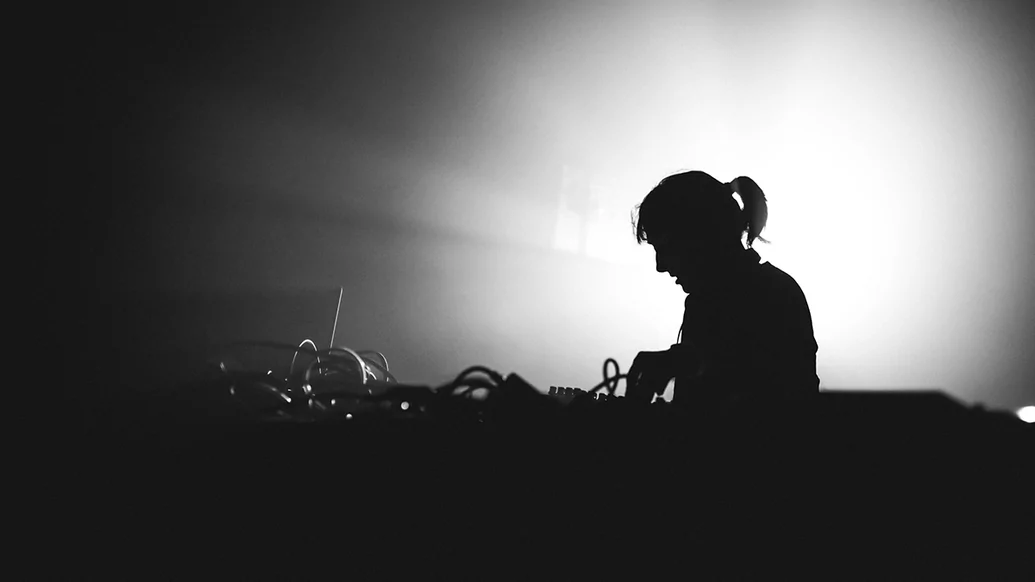

In the six years before ‘Colonized,’ Temple had been through nearly a lifetime’s worth of life-altering experiences. While she was somewhat political before leaving the industry, she viewed the world very differently upon her return. “I think it had a major impact, because it opened my eyes to how discrimination and oppression works,” she says. “It taught me a lot about patriarchy as well as intersectional oppression. There was classism, misogyny, homophobia — all the things I was trying to fight with working in the community, and it was happening in a micro way to myself and the people I cared about. It helped me open my eyes. So I realigned my sense of compassion and understanding.”
Temple was ready to make music again. But she didn’t want to take her position for granted. “I’m really lucky to be doing what I’m doing,” she says. So she asked herself, “How can I combine this with helping other people, even if it’s just in a small way, just voicing that I understand another person’s situation?” ‘Edge Of Everything’ is the answer to that question. Through 12 tracks of beautifully produced, cinematic and noise-inspired techno and ambient, Temple’s debut album focuses on topics like social and political activism, technological advancements, and the destruction wrought by our current economic system. It does so unflinchingly — tracks like ‘Raging Earth’, ‘Post-Scarcity Anarchism’ and ‘Futures Betrayed’ practically throttle listeners into understanding the dire consequences of continuing to ignore climate change. “I have looked at reports and forecasts of things like climate change,” Temple says. “Climate refugees are gonna happen; drought. This is really bad. And at the rate we’re going, we’re going to be on the worst end of predictions. We really have to pull our shit together to get on the better end of the nightmare that’s going to come.”
The album’s most jarring track is ‘Cages’. It hammers down with violence and rage, conveying the anger felt by Temple and millions more after it was learned that America’s current presidential administration was locking refugee children and their families in cages across the country’s southern border. “In the States, we are locking up children and refugees in disgusting conditions. We shouldn’t be locking humans up in cages. It’s about the prison industrial complex and how rife that is. Just for profit, we’re destroying people’s lives and taking away people’s freedoms. This is just disgusting, it’s disgraceful.”
She also points to the continual destruction of society’s most prophetic individuals at the hands of the powerful. ‘Joshua and Goliath’, the album’s first single, reimagines the biblical story of David and Goliath, with 22-year-old Hong Kong pro-democracy student activist Joshua Wong and the authoritarian Chinese government standing in for the story’s traditional characters. “There’s something really pure about these people,” Temple says. “Like the young Swedish girl Gretta [Thunberg], speaking up about climate change. They’re speaking purely from recognising what is right and doing the right thing, and then we go and try and discredit them and destroy them. Like the story that gave birth to Christianity and Jesus, how we destroyed him and his life. When are we going to learn these people are gifts? That they’re helping us get on the right path?”
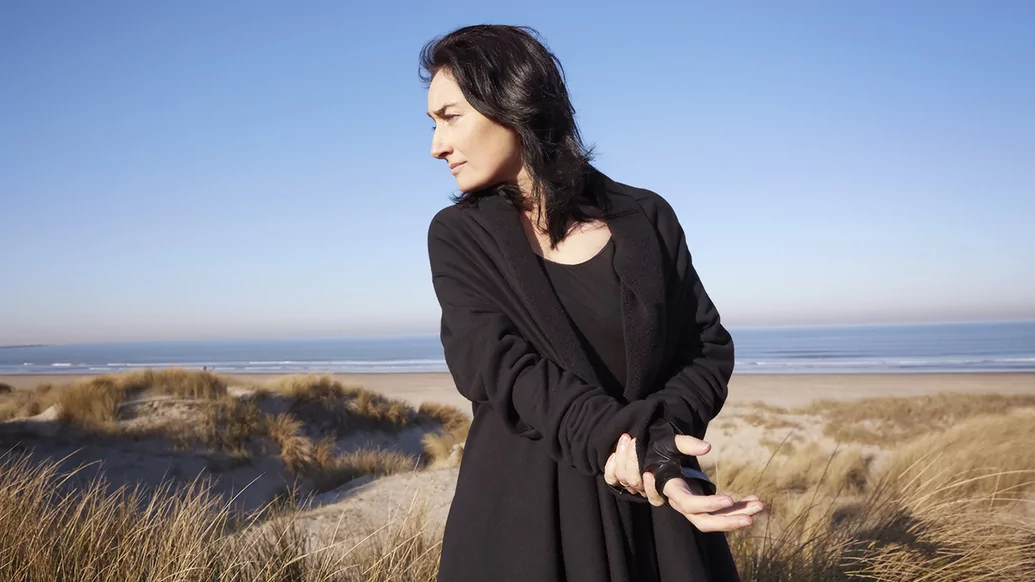

An entire album of this type of intensity would seem justifiable. Beauty can feel almost capricious in the face of such widespread disaster. But ‘Edge Of Everything’ delivers measures of optimism, as songs like ‘Dimension Jumping’ and ‘Quantum Unfolding’ hint at a possible escape from our current apocalyptic reality.
“It’s a glimpse to the expansion of our mind,” Temple says. “Science is really on the edge. Right now, it doesn’t know how to go any further. We’ve got all these theories about the universe and other dimensions. And I feel like, if only we could experience another dimension — fifth or sixth dimension — that that could be enough to completely bring us together and change our small-mindedness on this planet. A whole new world of possibility could open up. Whether that dimension is being able to look at our past or our future, it’s something so profound that we [realise], ‘Wow, my personal problems are not so important anymore’. There’s something bigger that we can all connect with. And it’s beautiful.”
Temple has made changes in her own life she hopes will have a positive effect on the world. She recently started carrying her own water bottle to gigs so promoters don’t have to waste more plastic. She’s also a vegetarian. “First and foremost because of the cruelty,” she says. “But secondly, [eating meat] has a huge environmental impact. It’s one of the biggest, along with fossil fuel. So we can make that personal decision. And even if it’s just to limit it to once a week, that’s still a massive reduction in demand.”
Despite her moments of optimism, Temple remains skeptical about the impact of individual action on issues like climate change. “There’s only so much we can do,” she says. Until corporations decide it’s more profitable not to pollute, the worst offenders among us will continue their destruction. But that doesn’t mean nothing matters. “Vote and protest. Resist getting sucked into media dividing hate games, which is a way to create a distraction from the real issues. Support activists, and share and speak up with them as there is strength in numbers. Learn about other types of economies — the system we are in currently is not working for most of us. Look into sharing economies and think outside the status quo,” Temple says.
‘Edge Of Everything’ is a call to action. While she feels selfish for no longer working in the community, Temple’s return to music has allowed her to spread joy around the world, reaching a far larger audience than ever before. With her debut album, she’s now focusing her message on the most important issues of our time. If enough people listen, we might just avoid falling off the cliff.



